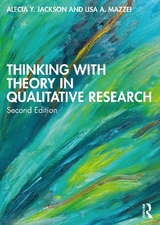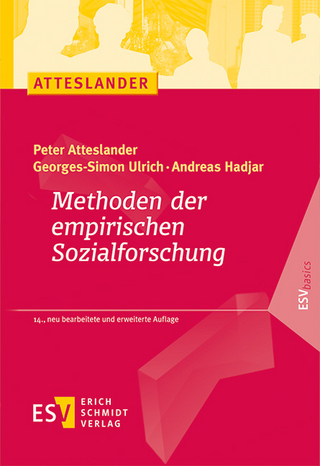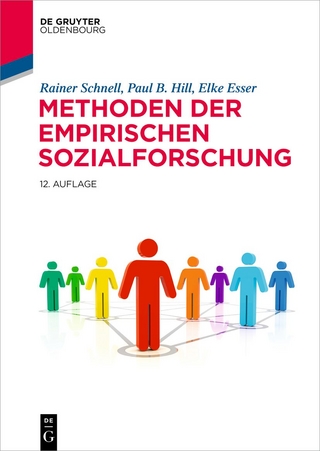
Thinking with Theory in Qualitative Research
Routledge (Verlag)
978-0-415-78100-8 (ISBN)
Thinking With Theory In Qualitative Research shows how to use various philosophical concepts in practices of inquiry; effectively opening up the process of data analysis in qualitative research. It uses a common data set and utilizes various theoretical perspectives through which to view the data. It challenges qualitative researchers to use theory to accomplish a rigorous, analytic reading of qualitative data. "Plugging in" the theory and the data produces a variety of readings applying various theorists and their concepts, including:
Derrida - Deconstruction
Spivak – Postcolonial Marginality
Foucault - Power/Knowledge
Butler - Performativity
Deleuze – Desire
Barad – Material Intra-activity
Thinking With Theory In Qualitative Research pushes against traditional qualitative data analysis such as mechanistic coding, reducing data to themes, and writing up transparent narratives. These do little to critique the complexities of social life; such simplistic approaches preclude dense and multi-layered treatment of data. It shows that "thinking with theory" pushes research and data and theory to its exhaustion in order to produce knowledge differently. By refusing a closed system for fixed meaning, a new analytic is engaged to keep meaning on the move. The result is an extension of thought beyond an easy sense.
Special features of the book include schematic cues to help guide the reader through what might be new theoretical terrain, interludes that explain the possibilities of thinking with a particular concept and theorist and detailed chapters that plug the same data set into a specific concept. This vital tool will help researchers understand and fully utilize their powers of data analysis and will prove invaluable to both students and experienced researchers across all of the social sciences.
Alecia Y. Jackson is Associate Professor at the Department of Leadership and Educational Studies, Reich College of Education, Appalachian State University, USA. She is co-editor with Lisa Mazzei of Voice in Qualitative Inquiry (Routledge). Lisa A. Mazzei is Associate Professor, Doctoral Program in Leadership Studies, Gonzaga University, USA. She is also Visiting Research Fellow at the Education and Social Research Institute, Manchester Metropolitan University, UK. She is co-editor with Alecia Jackson of Voice in Qualitative Inquiry (Routledge), and author of Inhabited Silence in Qualitative Research.
Introduction 1. Plugging One Text into Another Interlude I: Why Derrida? 2. Derrida: Thinking with Deconstruction Interlude II: Why Spivak? 3. Spivak: Thinking with Marginality Interlude III: Why Foucault? 4. Foucault: Thinking with Power/Knowledge Interlude IV: Why Butler? 5. Butler: Thinking with Performativity Interlude V: Why Deleuze? 6. Deleuze: Thinking with Desire Interlude VI: Why Barad? 7. Barad: Thinking with Intra-Action 8. Diffractions
| Verlagsort | London |
|---|---|
| Sprache | englisch |
| Maße | 174 x 246 mm |
| Gewicht | 320 g |
| Themenwelt | Sozialwissenschaften ► Pädagogik |
| Sozialwissenschaften ► Soziologie ► Empirische Sozialforschung | |
| ISBN-10 | 0-415-78100-0 / 0415781000 |
| ISBN-13 | 978-0-415-78100-8 / 9780415781008 |
| Zustand | Neuware |
| Informationen gemäß Produktsicherheitsverordnung (GPSR) | |
| Haben Sie eine Frage zum Produkt? |
aus dem Bereich



